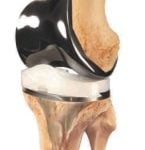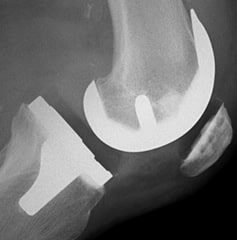

You have decided that it is time to pursue a knee replacement to rid yourself of that horrible pain and resultant poor quality of life. You decide to go to the same surgeon who casted your son’s fracture, cared for your sore back and perhaps your daughter’s scoliosis.
Should this surgeon perform your knee replacement?
Questions to consider (and ASK your surgeon):
- How many knee reconstructions or replacements they perform in a year?
- How many knee patients does their hospital care for (hospital volume matters too)?
- What is your surgeon’s revision rate (or failure rate)?
- Readmission rate?
- Infection rate?
Know the answers? You should.. because
Volume matters
Now, I do not mean to imply that all high volume surgeons are ‘better” surgeons … but the literature is fairly clear that you are at higher risk of complications in the hands of a low volume surgeon.
Many reports (here, here, here and here) over the last few years show that the results of knee replacements, and ACL reconstructions can vary significantly based on the experience of your surgeon and the institution they work at.
These studies are not surprising at all. Another recent study also shows that when blinded observers watched their colleagues demonstrate their skills in the operating theater, many surgeons were found to have inferior skill sets. Perhaps even more telling, The patients of these surgeons had longer procedures, more complications, poorer results and spent more time in the hospital. While there were some high volume surgeons with poor skills… the majority of “poor” surgeons had low volumes when it came to how many of these procedures they performed each year.
Which brings up other questions to consider:
- How long will the surgery take? — ACL should be approximately an hour or less. An uncomplicated knee replacement 60-70 minutes or less.
- How long does your average patient stay in the hospital? Average is 2-3.5 days. Any longer and it MIGHT point to a problem with your doc or their hospital.
Don’t be intimidated, and don’t be afraid to ask.. this is your knee we are talking about.
Ask questions.. if your surgeon is insulted-move on — there are plenty of high volume providers capable of performing the procedure you desire.
Do you have questions regarding an Orthopedic injury or longevity?
Do you want to talk to an expert who can listen to you for 45-60 minutes and explain the options in detail?
Dr. Howard Luks offers remote guidance sessions to review your X-ray or MRI images and explain your options.
Dr. Luks has also received hundreds of requests for educational sessions on the topics discussed in his book, Longevity Simplified.














John Bennett MD
Morning Howard:
That is exactly the advice I gave to my brother, who was having chest pain for a few days, became sweaty, and when he presented to the ER had a BP of 170/120, which is suspicious, to say the least.
He underwent a battery of radiographic studies, blood tests, serial EKG, all negative, and the ole cardiac cath was looming on the horizon.
His cardiologist did not order it, because his symptoms, for now, have stopped.
HOWEVER, if his cardiologist wanted to do it, what you wrote would have appled to this invasive procedure also. I would have suggested that he undergo that procedure with a cardiologist that was very, very, very experienced.
The same as total knees, and meniscectomies, etc.
john bennett md
Thanks for stopping by JB MD!